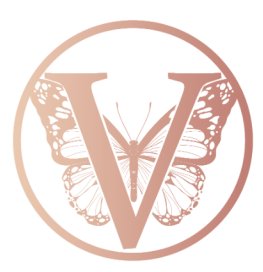Ah, Reiki: the mystical art of channelling energy that somehow seems to blend the ancient with the utterly bonkers. If you’ve ever wondered how waving your hands over someone can be termed “healing”, you’re not alone. Grab your coffee, sit back, and let’s dive into the fascinating world of Reiki and energy healing with a cheeky grin.
A Brief History: From Ancient Japan to Your Local Spa
Reiki, which means “universal life energy” in Japanese, was developed in the early 20th century by a chap named Mikao Usui. Legend has it that Usui spent three weeks on Mount Kurama, fasting and meditating, when he had an epiphany — much like the moment you realise you’ve been using the wrong end of a screwdriver. Upon returning, he began to practice what he called “Reiki Ryoho”, which translates loosely to “hands-on healing while avoiding awkward small talk”.
Now, you might be wondering, “Is this just a fancy way of saying ‘I’ll give you a hug and hope for the best’?” Not quite! Reiki practitioners use specific hand placements and techniques to channel energy in a way that can make you feel as if you’ve just had a restorative nap… without actually falling asleep in the dentist’s chair.
The Benefits: More Than Just a Fancy Nap
Reiki is reputed to offer several benefits, though you might not notice them all unless you’re particularly in tune with your chakra or have just finished a delightful biscuit. Here are some of the perceived perks of this energy healing practice:
1. Stress Reduction: Imagine lying on a comfortable massage table, eyes closed, while someone gently waves their hands over you. It’s like a mini-vacation in your own mind, except without the sunburn and questionable cocktails.
2. Emotional Balance: Feeling a bit all over the place? Reiki is said to help balance your emotions, which is about as useful as finding the last biscuit in the tin when you’re feeling peckish.
3. Pain Relief: Some people swear by Reiki for alleviating pain. While it may not replace your trusty paracetamol, it can at least offer a bit of comfort when you feel like a human pretzel.
4. improved Sleep: If you’re tossing and turning more than a pancake at a breakfast joint, Reiki might just help lull you into a peaceful slumber. Who needs sheep when you can have the gentle hum of positive energy?
5. Enhanced Wellbeing: It’s like a wellness smoothie for your soul. You might not be able to see the energy, but you can feel it, much like the mysterious ways your cat manages to sit on your keyboard.
A Little Skepticism Goes a Long Way
Now, before you rush off to book a Reiki session, let’s take a moment to acknowledge that not everyone is convinced by the power of energy healing. Some skeptics argue that it’s all a load of codswallop. Others think it’s just an elaborate way for practitioners to avoid serious conversation. But hey, if it makes you feel good and helps you relax, isn’t that what really matters?
How to Get Started with Reiki
So, you’ve decided to give it a go? Here’s how to dip your toes into the calming waters of Reiki:
1. Find a Qualified Practitioner (cough cough Me!): Look for someone with good reviews. If they have a website that looks like it’s from the 90s, it might be a sign to keep searching.
2. Set Your Intentions: Before your session, think about what you hope to achieve. Is it relaxation? Pain relief? Or perhaps just a few moments of peace from the chaos of life?
3. Keep an Open Mind: Reiki is all about energy. Trust the process, even if it feels a bit odd. You might find yourself giggling uncontrollably — it’s all part of the experience.
4. Enjoy the Experience: Whether you end up feeling like a Zen master or just a relaxed human, embrace it! After all, who doesn’t love a bit of pampering?
In Conclusion: A Bit of Energy for Everyone
Reiki and energy healing may sound a bit outlandish, but they’ve been embraced by many seeking a bit of tranquillity in an increasingly mad world. So next time you feel overwhelmed, consider giving Reiki a try. You might just find that a little energy flow is exactly what you need to brighten your day — or at the very least, provide a good story for the next dinner party.
Remember, whether you’re a total sceptic or a die-hard believer, it’s all about finding what works for you. And if nothing else, at least you’ll leave feeling a bit lighter
The Journey of Reiki: Energy Healing


